
11 minute read
R.E.M.
An exploration of the unconscious with Dr. Sara Dowd
From alternate realities, to different dimensions, we as humans love to toy with the idea of otherness. The other side, the alternative, the deeper meaning; we can’t help but wonder: How do these complex ideas imbue our lives? In REM, our goal is to traverse further into these intricate topics and to take a trip down the royal road to the unconscious. Dreaming is one of the most common ways that we falter the illusive border of reality; however, it is something that we know little about. Although we have scientific evidence for the stages of sleep and R.E.M. sleep, there is no clear way to empirically prove the psychological reasoning behind dreaming. Many have attempted to study the unconscious, including the notorious Sigmund Freud, but experimentation and limited research on this topic proves difficult. Fortunately, we had the opportunity to speak with Psychologist Dr. Sara Dowd and were able to explore more about the psychological basis of dreaming, if the popular interpretations that we know today are valid, and question if one can ever truly know the meaning of their dreams.
WHAT IS YOUR NAME & WHERE DID YOU EARN YOUR DEGREES, AND IN WHAT?
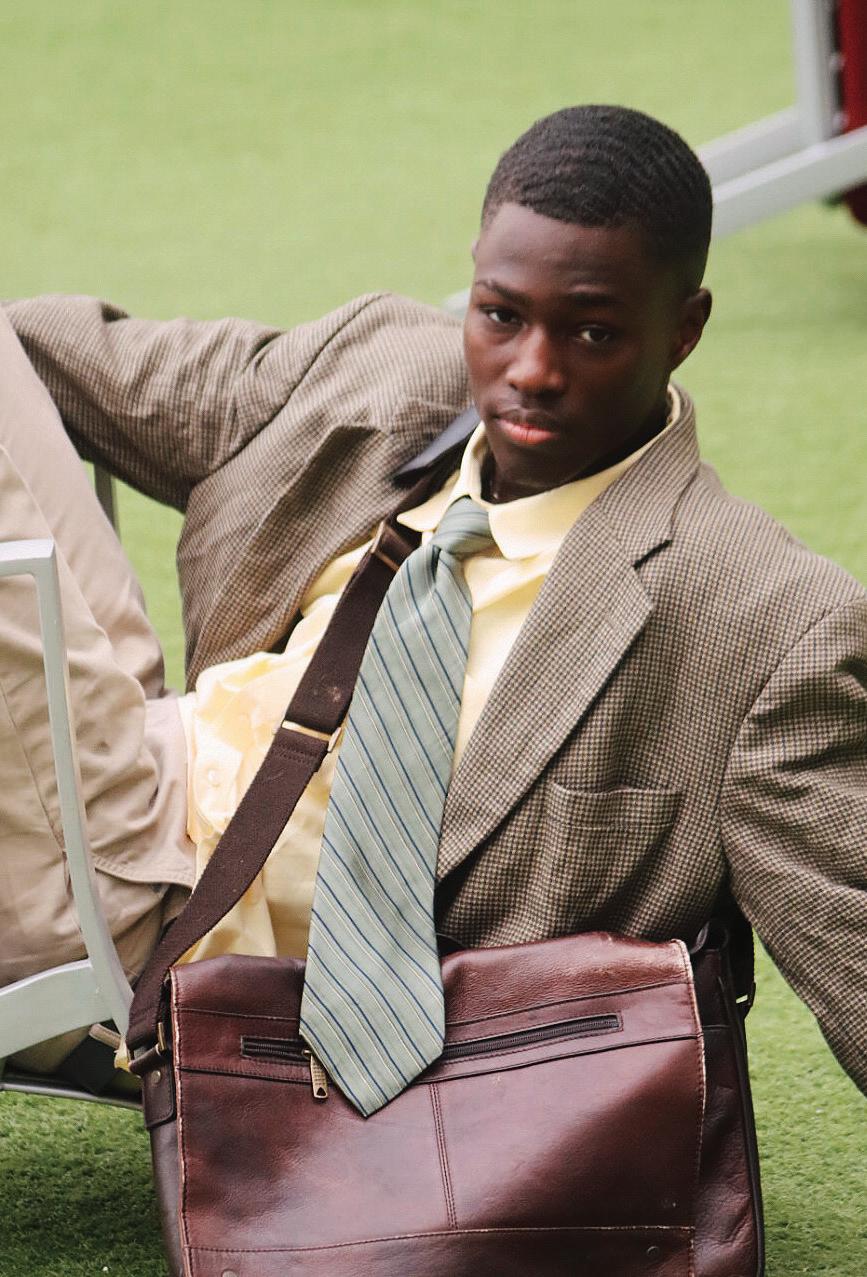
Dr. Sara Dowd. I got my undergraduate degree in New York City at a small college called Baruch College. I got my honors degree in psychology, and then I got a second degree in English. I got my Ph.D. in Social Psychology here at Texas A&M.
WHAT DO YOU TEACH AT TEXAS A&M AND WHAT IS YOUR FIELD OF FOCUS IN PSYCHOLOGY?
I think my specialty is PSYC 107, the intro into psychology course. My other specialty class is adjustment psychology - which I built this class basically from scratch - so I'm really proud of that one. As for field of focus, I don't know if I necessarily consider myself as having a specialty. Originally when I came to A&M, I was kind of in 2 Ph.D. programs, the clinical department and the social psychology department. I ended up switching to social psychology, but my heart is still very much into wellness. I worked at a startup for a hot minute that did holistic wellness, and though I wasn't a licensed practitioner by any means, I did a lot of writing about mental health, And certainly, a lot of my classes are about that.
WHY DID YOU CHOOSE TO STUDY PSYCHOLOGY, AND WHY DID YOU CHOOSE TO COME TO A&M?
One of the cool things I like about dreams and the unconscious is the collective unconscious. There's a Freudian unconscious, which is about your individual unconscious. But there's also something called the collective unconscious which was theorized by Carl Jung. Part of the Collective Unconscious is making meaning of coincidences. A collective unconscious suggests that all of our unconsciouses are working together and do quirky things that don't make sense. All that's to say, the first year I applied to grad school, something kind of terrible ended up happening to me, so I didn't get in that year. That year, my friend gave me a shirt that just said "Texas" on it. After that, I had this feeling that I was going to end up in Texas, and Texas A&M also gave me a special fellowship.
WHAT LED YOU TO YOUR SPECIAL INTEREST IN NEUROSCIENCE AND OR DREAM INTERPRETATION?
My specialty is not neuroscience or dreams by any means, but I really like dream interpretation. In looking at Freud, a prominent figure in dream analysis, there's two schools of thought around Freud and dreams: that it's a bunch of baloney or the people who do buy it. I was personally determined to be a hard scientist, and so when I came to A&M I didn't necessarily want to be one of those types. But I changed my mind, and partly did so because of teaching. When you teach, you get so many students sharing crazy dreams that they had, and I got to the point where I decided to no longer hold my scientific skepticism to the highest regard and chose to be a human and to believe first. I think that this journey has been life-changing for me.
WHAT ARE THE STAGES OF SLEEP, AND WHAT IS THE DEFINITION OF REM?
There are four different stages of sleep, but these stages are not always so clear cut and are sort of like a slope. Each stage gradually gets you deeper into sleep, and if you look at EEG [Electroencephalogram- used to measure electrical brain activity] data to various degrees, it looks like slower waves and higher voltage or amplitude. REM is interestingly the level right on the surface of sleep. You go from stage one all the way down into stage four, but then every time after that you go back up, and instead of waking up, you hit what we call REM sleep (rapid eye movement). Some argue that we dream during that REM cycle, and not throughout the rest of our sleep. In my hypothesis, I think there's enough evidence to support that dreaming can be possible in deeper stages of sleep. In REM you have more access to the visual dream, but people who get night terrors for example, typically wake up in stage four. That's deep sleep, and not REM.
WHAT IS THE PSYCHOLOGICAL DEFINITION OF A DREAM?
The definition varies. I don't know if psychology has a more sophisticated version of this, but a neuroscience heavy person would probably emphasize that it happens during R.E.M. and the casual version would probably be more about visuals. I think when we talk about dreams, we're usually talking about something that we can attach a plot to. Someone who wants to emphasize the importance of R.E.M. and dreams would also emphasize having access to that visual stimuli, but someone who wants to make dreams as abstract as possible would probably say that it is an experience that you have while you aren't conscious.
take a trip down the royal road to the
WHO IS FAMOUS FOR STUDYING DREAMS, WHAT ARE HIS THEORIES?
[Sigmund] Freud is most famous for dream analysis, and he has a couple of things that he's famous for. The idea with dreams is that the royal road to the unconscious is more than just sleep, it is also the things you're not conscious of. Part of his theory is the psychosexual stages of development. The idea is that slowly throughout your life, you are shamed for basic needs, and this could be any kind of need for physical affection. The other part of that process is putting things into what he calls the id, ego and superego. Your id is what you really want to be doing, and it’s like the devil on your shoulder. You then have the superego, which is what society tells you you should be doing. The superego sort of ignores your id needs, fighting against each other. Lastly, your ego mediates between those two. There is also something called “Freudian slips,” which are when you say the wrong word and it's kind of embarrassing, like kids calling their teachers mommy. And then you have dreams which are not just one moment in time. It's almost like watching a movie, and you can figure out all sorts of interpretations about them. The unconscious is real to various degrees and Freud took it the most seriously.
WHAT DO YOU THINK ABOUT HIS THEORIES?
I tell my students when I talk about Freud that if you believe him first, instead of saying “this is all a bunch of baloney,” say “Okay, I can kind of buy what he's saying,” …then his theory starts to come to life! In my opinion, the best way to approach it is that some of these dream interpretations/ unconscious experiences can be used as a starting off point. I think that every dream is going to be right with multiple interpretations, and describing each of those perspectives will give you a different perspective on who you are, because we're all very complex people. I think it's absurd to dismiss Freud’s theories… Why have experts with theories if we just dismiss it as soon as it's cool to hate them?
What is your opinion on the concept of psychoanalyzing dreams?
I think I like to approach it this way: Every single part of you deserves to be understood, and every part deserves attention. It is really crazy that we all just actively hallucinate every night, and the idea that you shouldn’t pay attention to that, I think, is much crazier than the idea that you should. I think if you choose to believe and search for evidence to support it, anecdotal evidence is also evidence, and something about that has made my dreams certainly come to life in an undeniable way.
Is there credibility to popular/ nonpeer reviewed websites that tell you what your dreams mean? (Ex: dreaming of cheating on a
partner, dreaming of teeth falling out, dreaming of somebody dying)
So something like “La La Land”… did that movie have an effect on you? Do you ever look up interpretations or talk about it with your friends after? If yes, do you feel like talking about those interpretations affects you? That’s kind of the point of the art…right? Art reflects life, but it also influences you. I’m a huge Swiftie, so listening to her music influences me, but looking up the meaning of the lyrics changes my interpretation of who I am as well to various degrees. So if that process is so influential, the idea that taking your dreams and analyzing them isn’t going to have an effect on you, again, I think is absurd.
To wrap things up, what would you say to someone wanting to learn more about dream analysis?
I think that as much as I love dream analysis, and while I do think the websites might create a really good starting point, I wouldn’t put too much stock into the belief that there is one correct answer. I think the point is collecting a bunch of different interpretations, seeing what you do with them, and seeing how talking about them influences you. I would say to just start somewhere, and I would take your dreams seriously. Put effort into remembering them and interpreting them in multiple ways. Try not to find “the” answer: It’s about the experience.
Thank you, Dr. Dowd, for your time and sharing your insights with us. We wish you well in your future endeavors!
Writer: Haley Cox
Photography: Alexis Holt

Design: Anna Keller
Model: Abdullah Olakukan
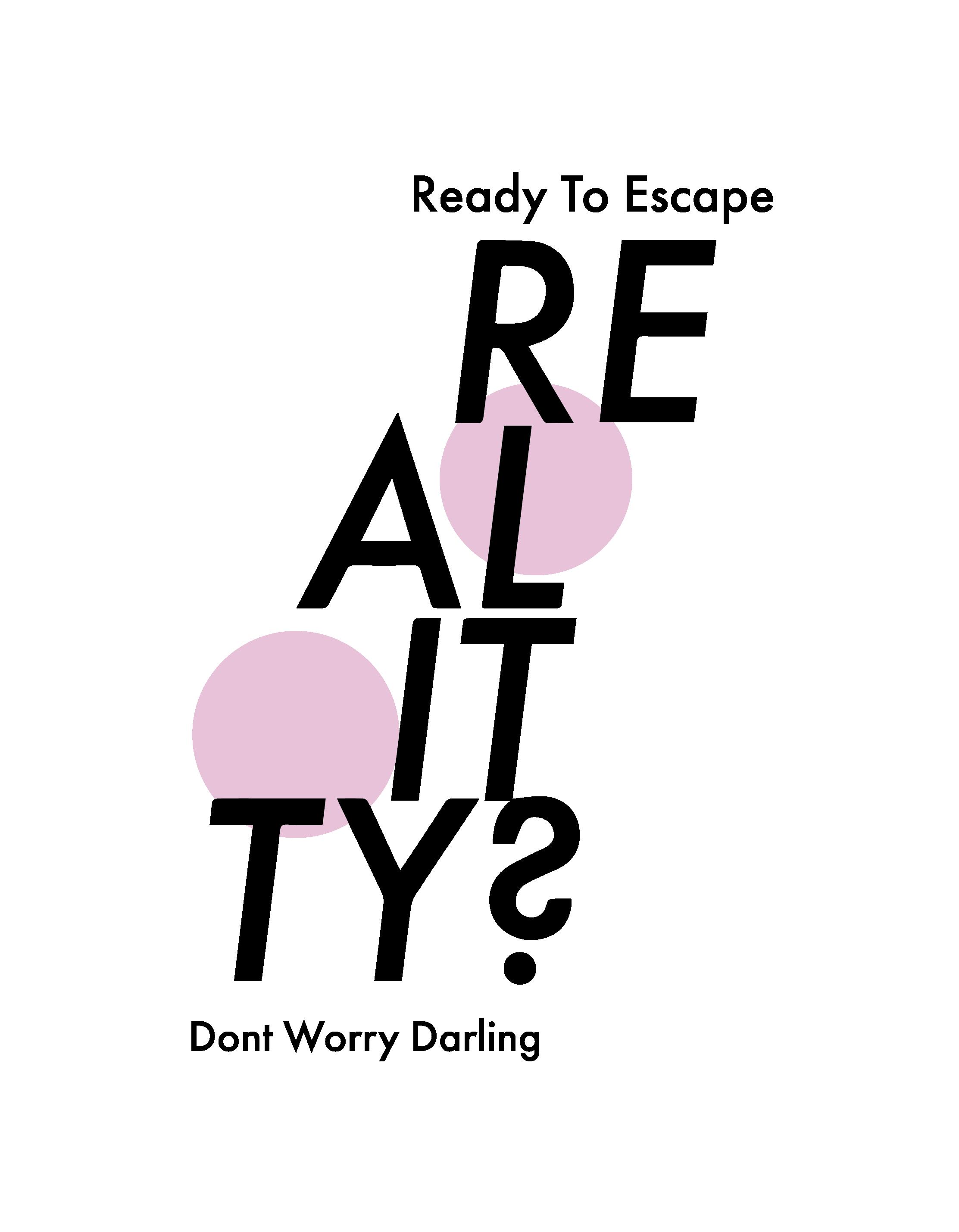
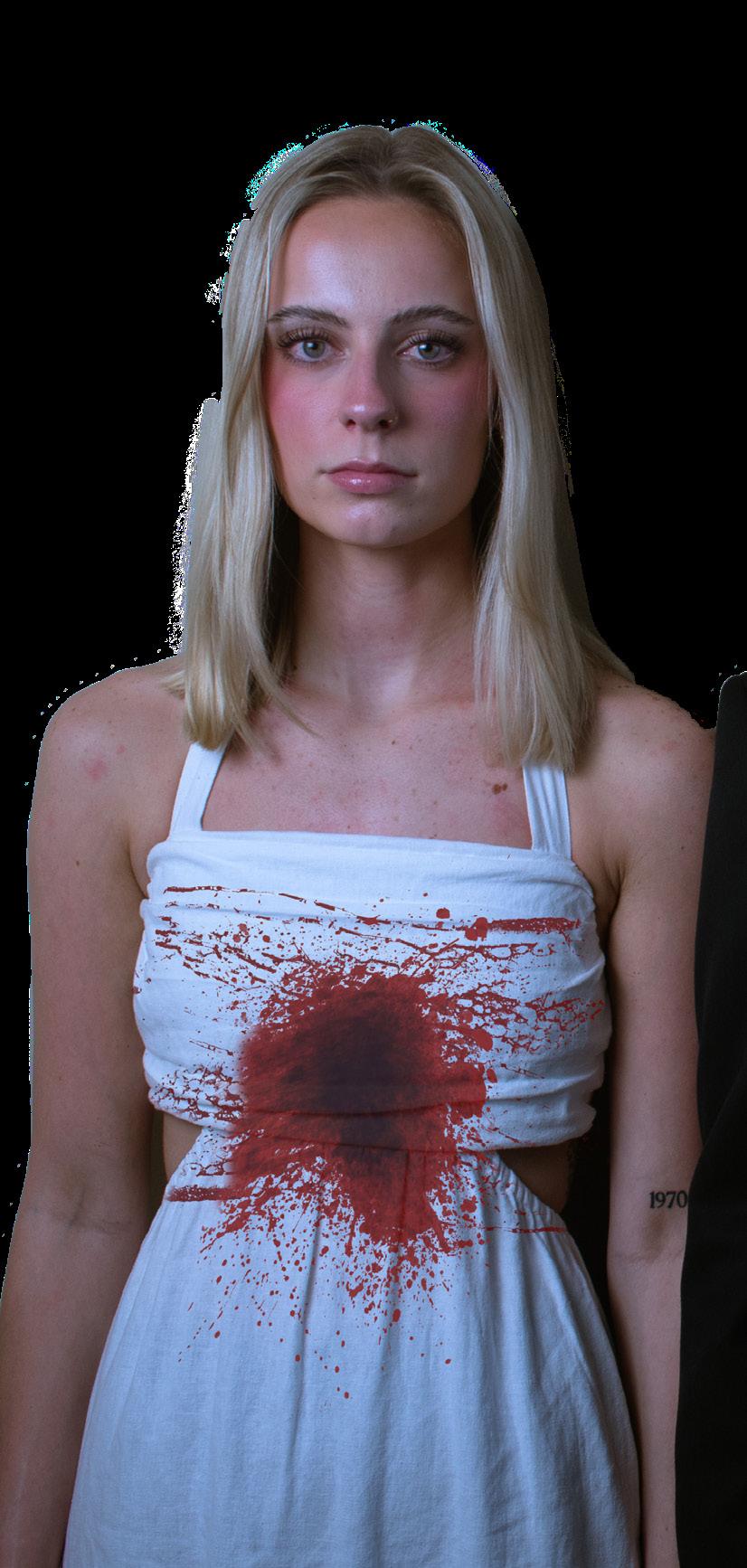
Don’t Worry Darling… this fantastically retro and A-List celebrity-filled movie is more than just a psychological thriller as it looks deeper into the minds of the characters through their internal struggles, bizarre interactions, and constant suspicions.
Phantasmagoria:
Hallucinations:
Individuals may experience phantasmagoria and hallucinations throughout their lives. “Don’t Worry Darling” explores these experiences and dives into what is real and what exists only in our minds. Throughout the film, the protagonist Alice, played by Florence Pugh, constantly demonstrates that distinction. After an incident where Alice wandered into the desert and came in contact with the hub of the simulation, she awoke in bed to Jack making her dinner. Although she was about to escape the simulation, she is sucked back into the virtual world. The simulation, titled the Victory Project, was created by Frank, played by Chris Pine, meant for users to forget about their realities and become a part of a society in which everything is ideal, at least for men. Have you ever had a dream or deja-vu that was so vivid, you could have sworn it actually happened? Alice is a perfect example of trusting one’s intuition, as she symbolizes the voice of reason throughout the movie. After noticing her friend, Margaret, played by Kiki Layne, is mentally struggling, Alice trusts her gut despite the suspicious excuses from others in the Victory Project. Unsatisfied with Margaret’s death being ruled as hysteria, Alice continues to dig and obtains doctor’s notes, confirming her suspicions of a larger underlying issue at hand. The hallucinatory aspect of this movie takes away from the fact that the enticement of the story is that every day in this alternate world is meant to signify perfection. Each wife has the perfect husband, the perfect house, the perfect car, the perfect wardrobe – the dream world as some would say.
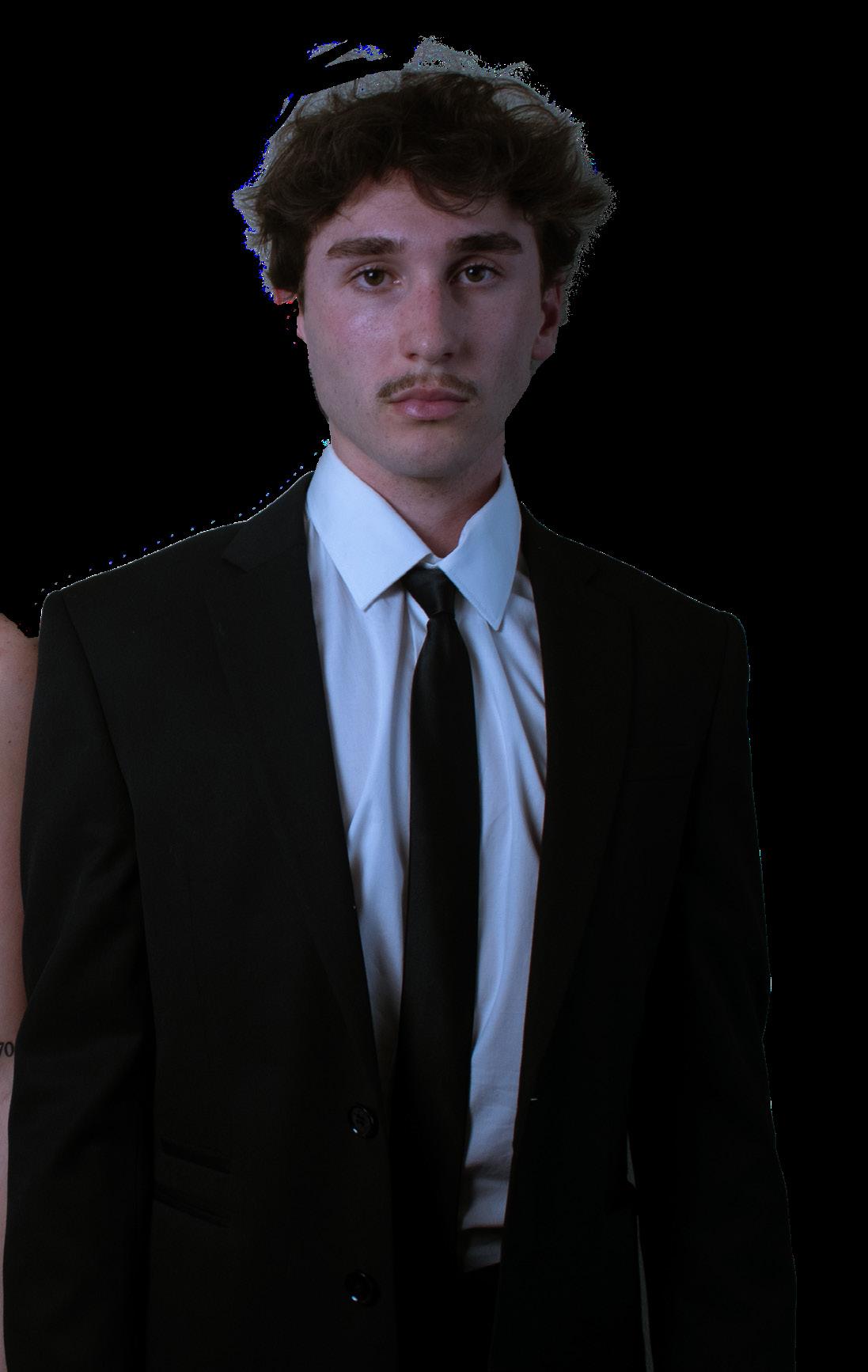
The mental and physical hardships the characters are willing to undergo to have a superb life feels like an actual reality in today’s society. For example, a greater number of individuals are beginning to alter their lives, bodies, and social media, to have the ideal life. “Don’t Worry Darling” portrays the great lengths individuals will go to achieve their dream life regardless of the consequences. Director Olivia Wilde’s character, Bunny, is a clear example; her signature cat eye look, stylish 50s glam, and beautiful children makes her appear to be the epitome of happy wife, happy life, although this is far from the truth. In the scene where Alice is having a panic attack at the Victory Project Gala, Bunny snaps at Alice to ride it out and enjoy it, showcasing the lack of support women are given throughout the movie. In today’s society, it can be difficult for women to be believed when they’re struggling. Women may be portrayed as insane because they attempt to stand up to patriarchal structures. However, Alice is not conforming to the expectations of the women in this reality, while Bunny embraces it. When viewing this scene, it’s inferred that although Bunny seems like she genuinely wants to be in the Victory Project, she is disheartened at the fact that she knows the reality of her situation. Even though Bunny invalidates Alice’s feelings at the gala, Alice still places most of her trust in Bunny. As the movie approaches its conclusion, Alice discovers that she has been lied to by her husband Jack, played by Harry Styles, and falls to pieces after realizing she is in a simulation. Bunny then comes to her friend’s aid and shows her the good in their world. Bunny mentions that the reason she and her husband chose
When the audience gets a look inside Alice’s real life, it is implied Alice typically comes home from an extensive hospital shift and finds her husband in the same spot she left him. Alice would like a balance and equal division in household tasks, but it seems that Jack does not want to. It is obvious that Alice’s success leads to a clear disconnect in their relationship. Eventually, this is where his interest in The Victory Project stems from; it is an attempt to become the stereotypical man of the house. Nowadays, women can be the breadwinner of the household and are able to take on traditionally more masculine roles, but gender inequality in society expects women to possess superhero qualities, accomplishing all without the help and redistribution of tasks.

This so-called dream world was interrupted by hallucinatory circumstances and patriarchal actions. Alice is not only able to get past the nagging feeling of knowing that she is not supposed to be where she was, but is also able to stand her ground and become a dominant figure. Alice proved that women can do both, they can be the perfect housewife, who cook, clean and tend to their husbands, but they can also be career motivated, strong-willed females who are just as intelligent and worthy of recognition as men. No matter how thrilling and illusory this movie may seem, it contains a deeper message which shows women all around the world that they are strong and can make their own decisions.
Writer: Alexa Davis
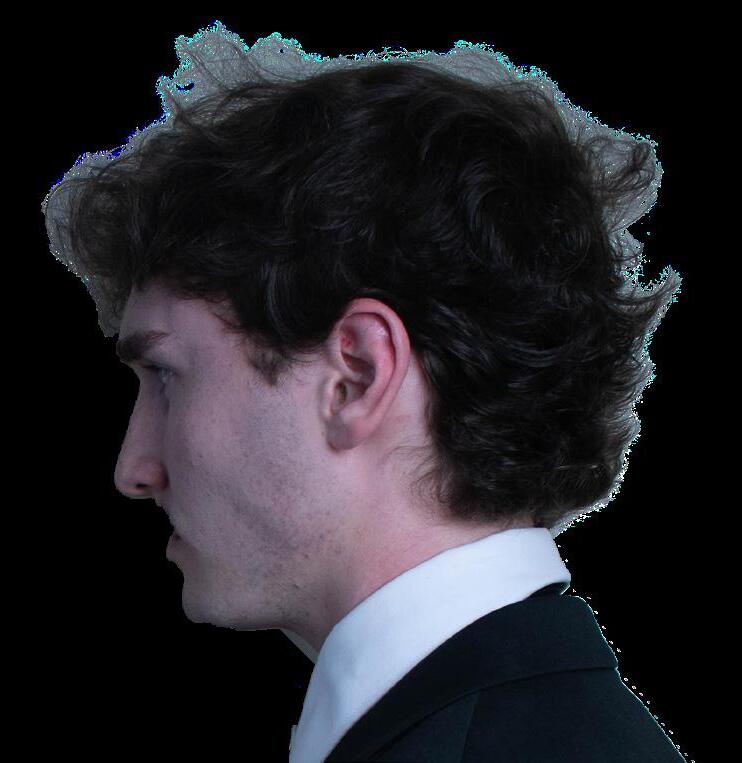
Photography: Rylie Meek
Design: Noa Shrikhande
Models: Mikayla Colby & Braxton Husk



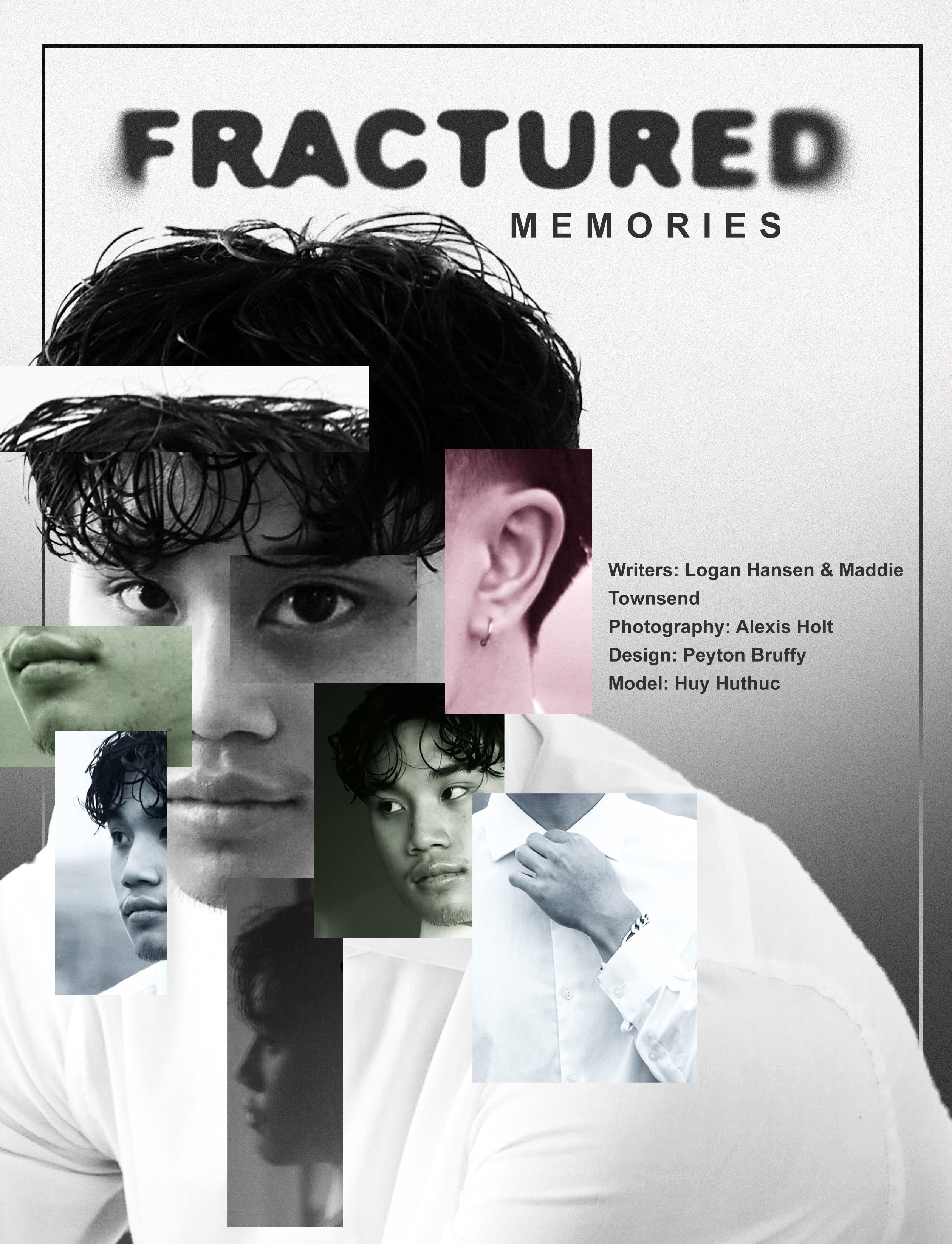
Haveyou ever gotten an eerie feeling when trying to recall a certain memory? Ever felt like you were going insane for misremembering past events? Well, you’re definitely not alone. Ever since the already believed death of Nelson Mandela, collective memory falsifications have led an array of individuals to feel crazy, sparking the 2000s debate of the Mandela Effect.
Originally coined by Fiona Broome, the Mandela Effect refers to a situation in which a large mass of people believes that an event occurred when it did not. This was, after she discovered that she, along with several others, believed that the first president of South Africa, Nelson Mandela had died in the 1980s when he was very much still alive (he died in 2013).
While Broome was discussing the tragedy with others, she learned she was not the only person to remember his death in additon to media coverage and speeches. Fascinated by this mistaken recollection of events, she published a book discussing what she referred to as the Mandela Effect.










